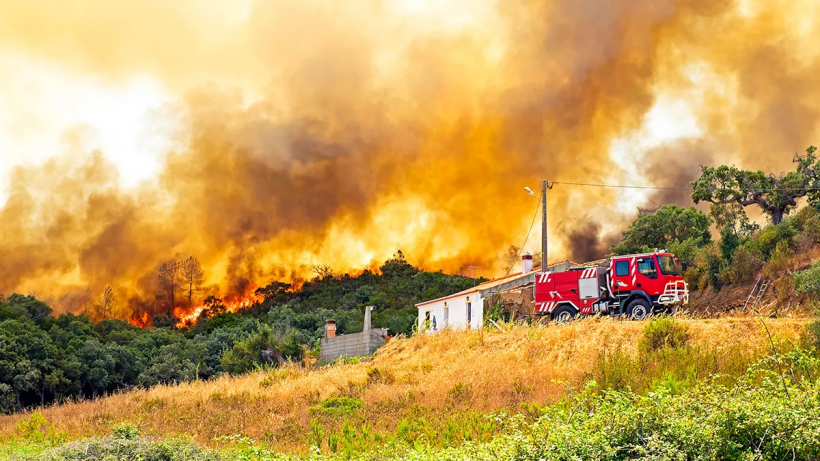Portugal is Burning: Wildfires Claim 7 Lives, Thousands of Firefighters Battling Blazes

Portugal: wildfires have ravaged the country, with firefighters battling fierce blazes that have claimed seven lives and scorched over 10,000 hectares of land in just a few days—more than the rest of the summer combined. The fires, primarily in the northern Aveiro region, are being fueled by strong winds and extreme heat, creating a dangerous situation for those attempting to contain them.
Three firefighters lost their lives on Tuesday when their vehicle became trapped in the flames in Coimbra. Initially, it was believed the three victims—two women and one man—had died in the northern part of the country, but authorities later clarified the location. The death toll now stands at seven, with about 50 people injured, including several firefighters.
As of Tuesday, more than 4,500 firefighters, assisted by over 1,000 vehicles and around 20 aircraft, are working to control some 50 active fires. A high-alert warning, initially set on Saturday, has been extended through Thursday, as Prime Minister Luis Montenegro cautioned that challenging conditions are expected to persist. Montenegro has canceled all his scheduled events to focus on the crisis.
To combat the fires, Portugal has called on the European Union’s civil protection mechanism for additional support. Two Canadair water bombers arrived from Spain on Monday, with more firefighting planes from France, Italy, and Greece expected soon.
Among the casualties is a 28-year-old Brazilian forestry worker who perished while trying to retrieve tools. A separate victim died of a heart attack, and a volunteer firefighter tragically passed away during a lunch break on Sunday in the Aveiro region, which has been particularly hard-hit.
The fires have disrupted transportation across northern districts, including Aveiro, Viseu, Vila Real, Braga, and Porto, as well as the central region of Coimbra. Experts have labeled Monday’s fire risk as the highest seen in northern Portugal since 2001, attributing the worsening fire conditions to heatwaves exacerbated by fossil fuel emissions.








